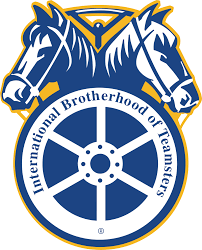New York, NY – Delivery workers who deliver restaurant orders for third-party food delivery apps in New York City now have first-of-their-kind new protections to promote better working conditions in the food delivery industry, the Department of Consumer and Worker Protection [DCWP] has announced.
Workers will get to choose how far they’ll travel and what routes they’ll take, receive more information about deliveries before accepting them, get paid at least once a week, and be provided with a free insulated delivery bag after six deliveries. These worker protection laws are the second part of a suite of new sweeping legislation regulating online third-party food delivery apps and enforcing brand new labor standards for delivery workers. The first part of the legislation, which requires third party food delivery apps to be licensed to operate in New York City, went into effect in January 2022.
Beginning April 22, third-party food delivery apps must:
- Allow food delivery workers to set limitations on distances they will travel from restaurants and which bridges or tunnels they are unwilling to use;
- Provide upfront disclosure to food delivery workers about route, pay, and gratuities;
- Pay food delivery workers at least once a week;
- Offer payment options to food delivery workers that are free of charge; and
- Provide a free insulated delivery bag to a food delivery worker after six deliveries.
In addition to the new worker protection laws, the January regulations require certain third-party food delivery apps to:
- Have a DCWP license;
- Tell workers how much the customer tips for each delivery;
- Tell workers their total pay and tips for the previous day; and
- Have written agreements with restaurants, list the phone number of the restaurant on the app if a phone number is provided, and, in some cases, provide restaurants with customer data if available. Agreements entered on or after January 24, 2022 must contain a provision requiring the restaurant to allow bathroom access to delivery workers, with limited exceptions for health and safety reasons.
Beginning next year, apps will also be required to pay workers the new minimum pay rate that the City will set. The rate will not include tips. DCWP is currently conducting a study on working conditions in order to determine the new minimum rate. As part of this effort, DCWP will host a public hearing in June to hear testimonies directly from delivery workers and other stakeholders.
Delivery workers, apps, restaurants and consumers can visit nyc.gov/DeliveryApps for multilingual resources and information about these new regulations, including the newly required Notice of Delivery Worker Rights (additional languages coming soon), a video (additional languages coming soon), a full list of the new requirements under the laws, restaurant rights and responsibilities, and the Third-Party Food Delivery Service License Application Checklist. Workers can also call 311 and ask for “delivery worker” or email OLPS@dcwp.nyc.gov for more information.
“As food delivery worker we are aware that we are doing high-risk work every day,” said Sergio Solano, leader of NYC Food Delivery Movement. “The fight of all the delivery workers is more visible today, as we can report any anomalies with the apps, and now we have a little control over the distances and income, but we still have penalties when we reject an order that goes to an unacceptable distance with an unacceptable payment.”
Worker’s Justice Project Executive Director Ligia Guallpa called this a “historic day for Los Deliveristas Unidos.”
“April 21 is a historic day for Los Deliveristas Unidos, who started their movement by mobilizing more than 2,000 app delivery workers to the streets of Times Square,”Guallpa said. “Since then, NYC Deliveristas have been building a fairer future of digital work by raising standards through landmark legislation, ensuring transparency in the gig economy and designing a new infrastructure for 65,000 app delivery workers. The Worker’s Justice Project is proud to be powering the organizing of Deliverista in the era of the gig economy.”






